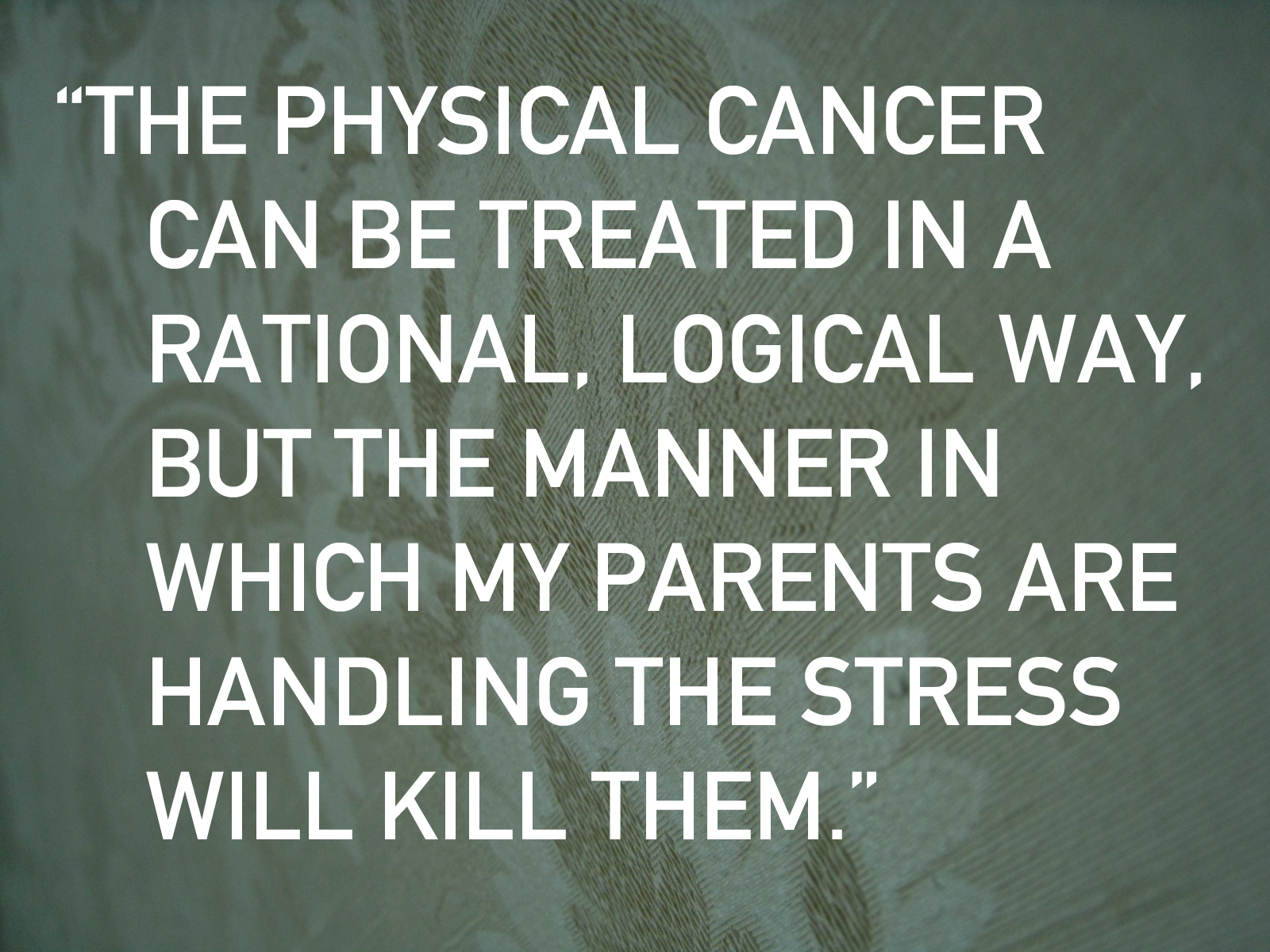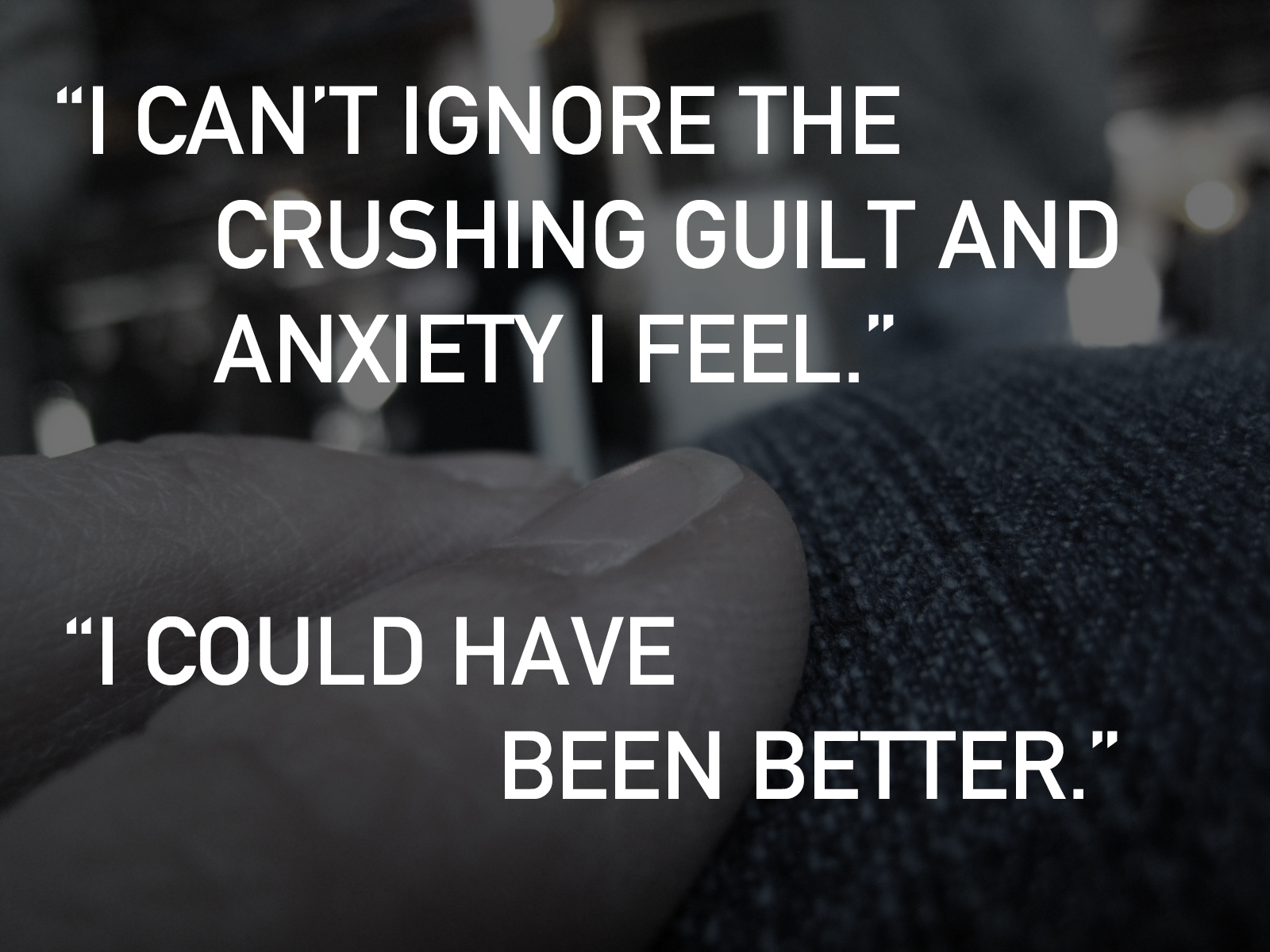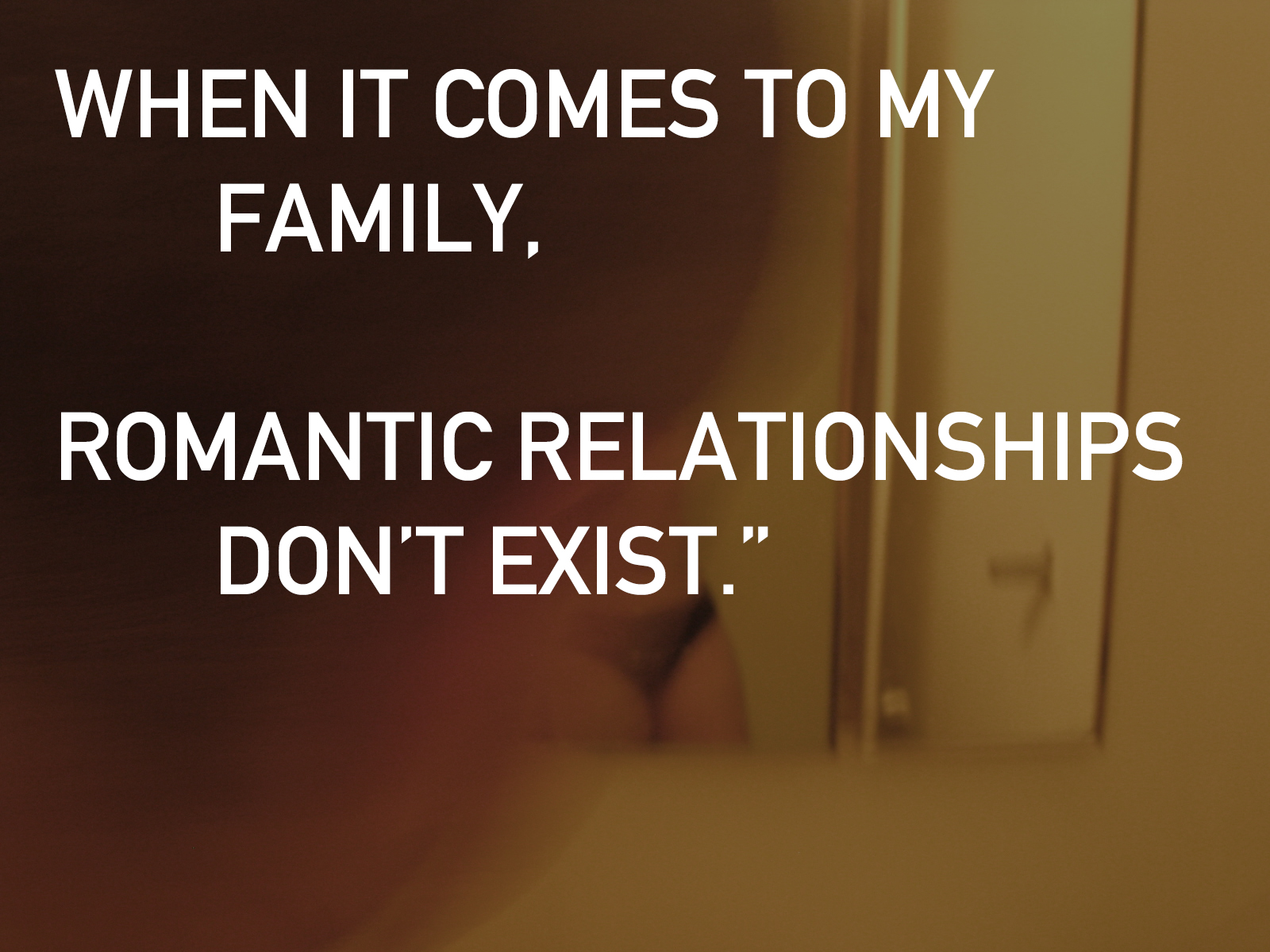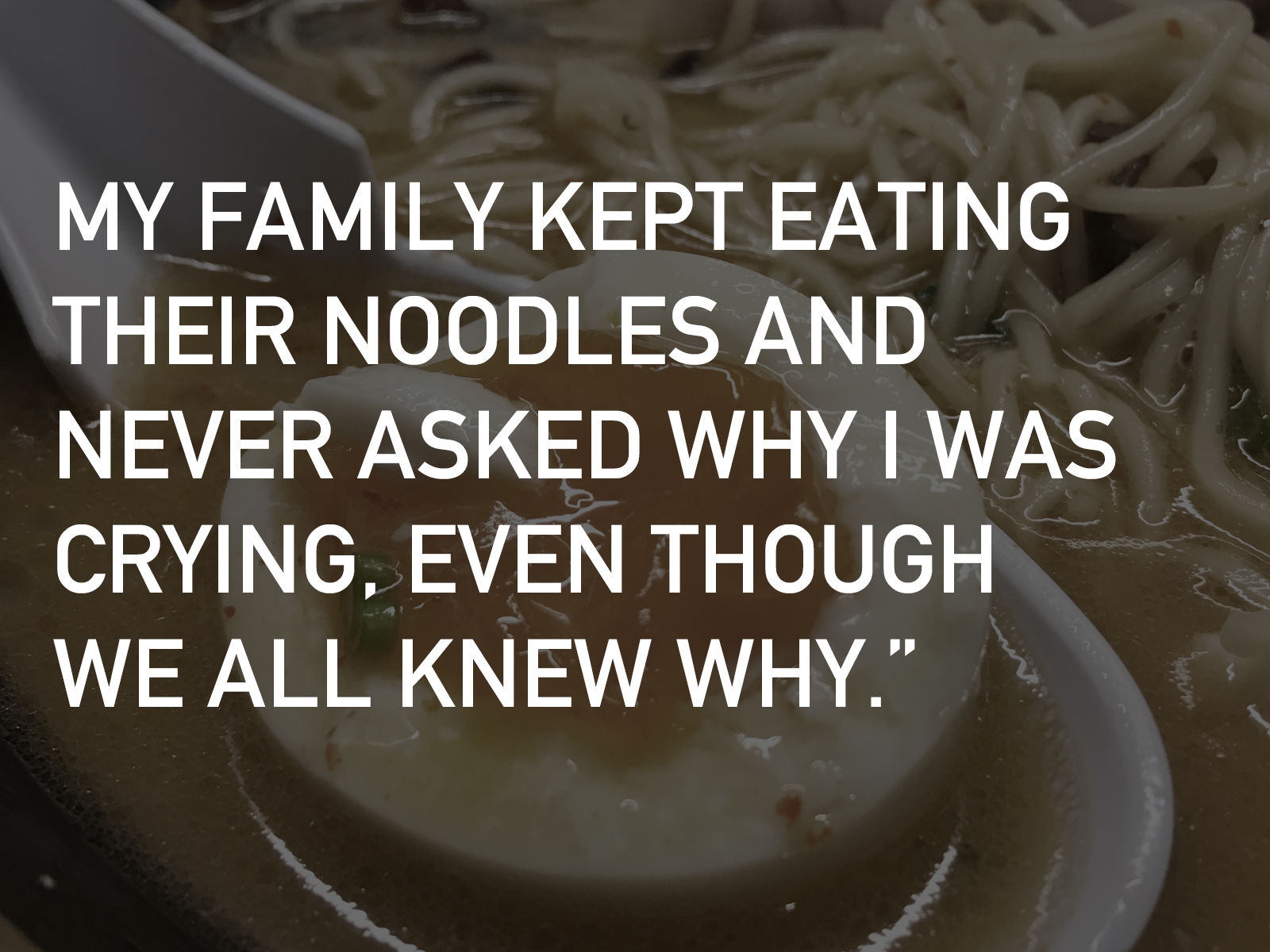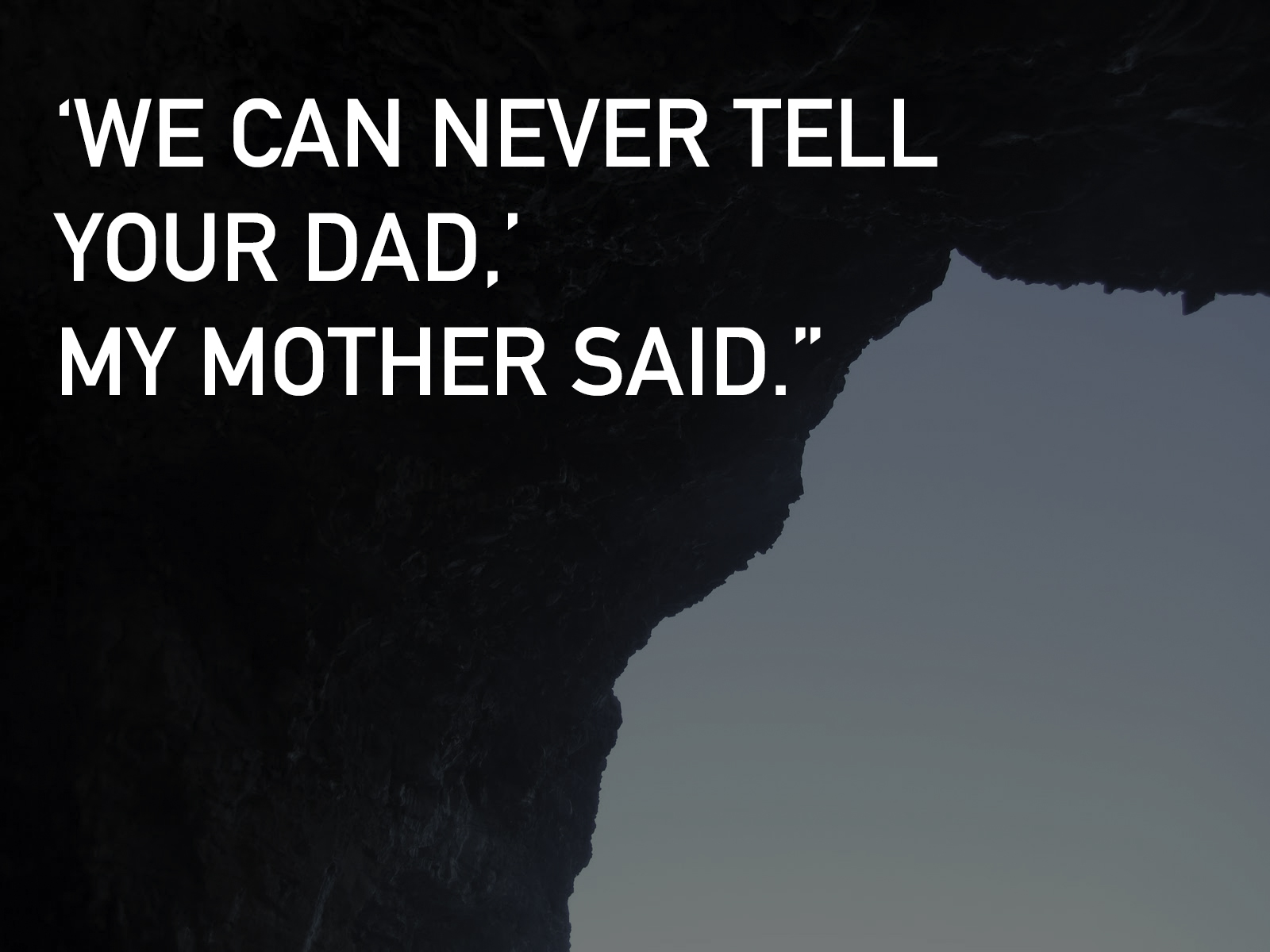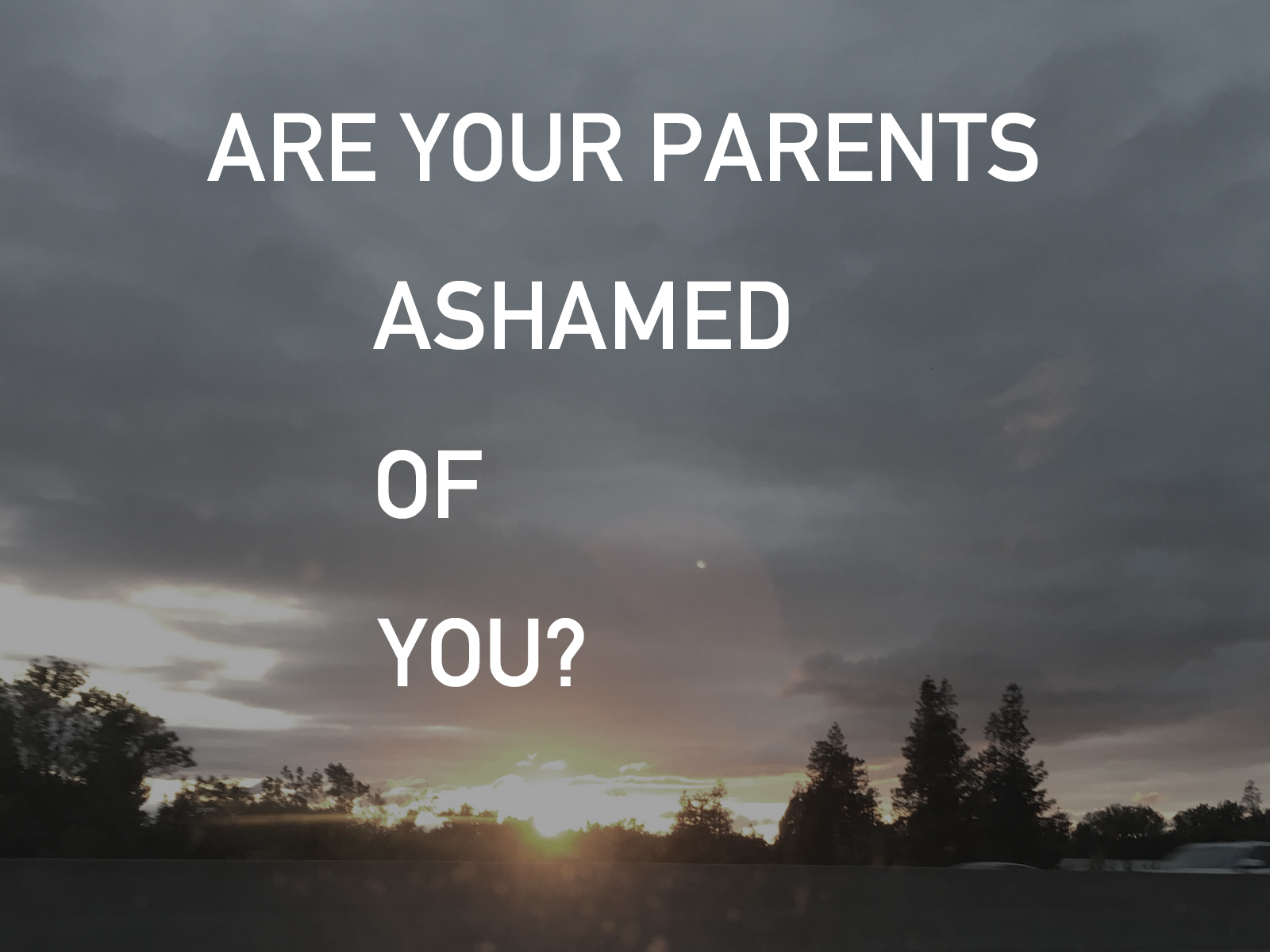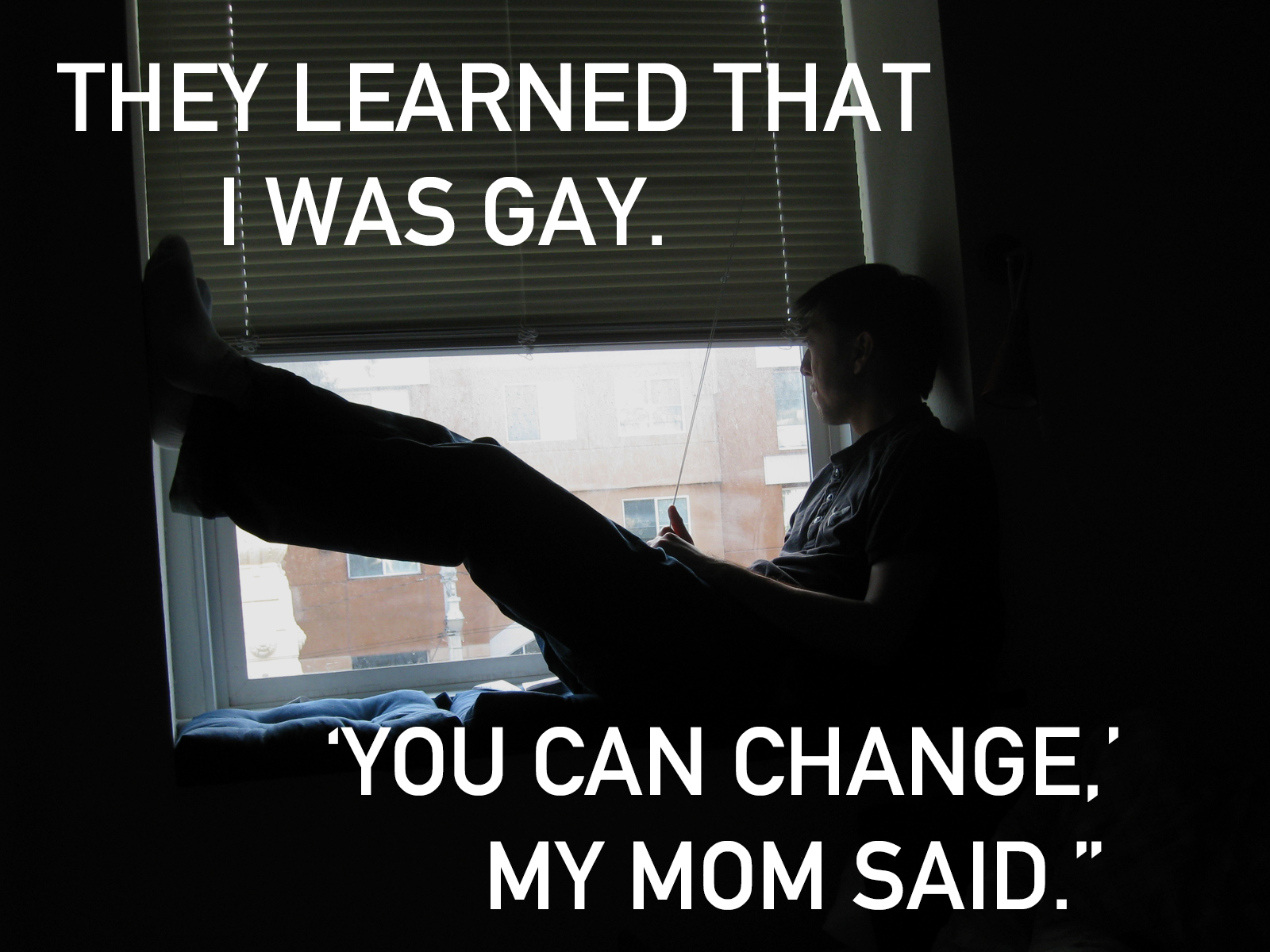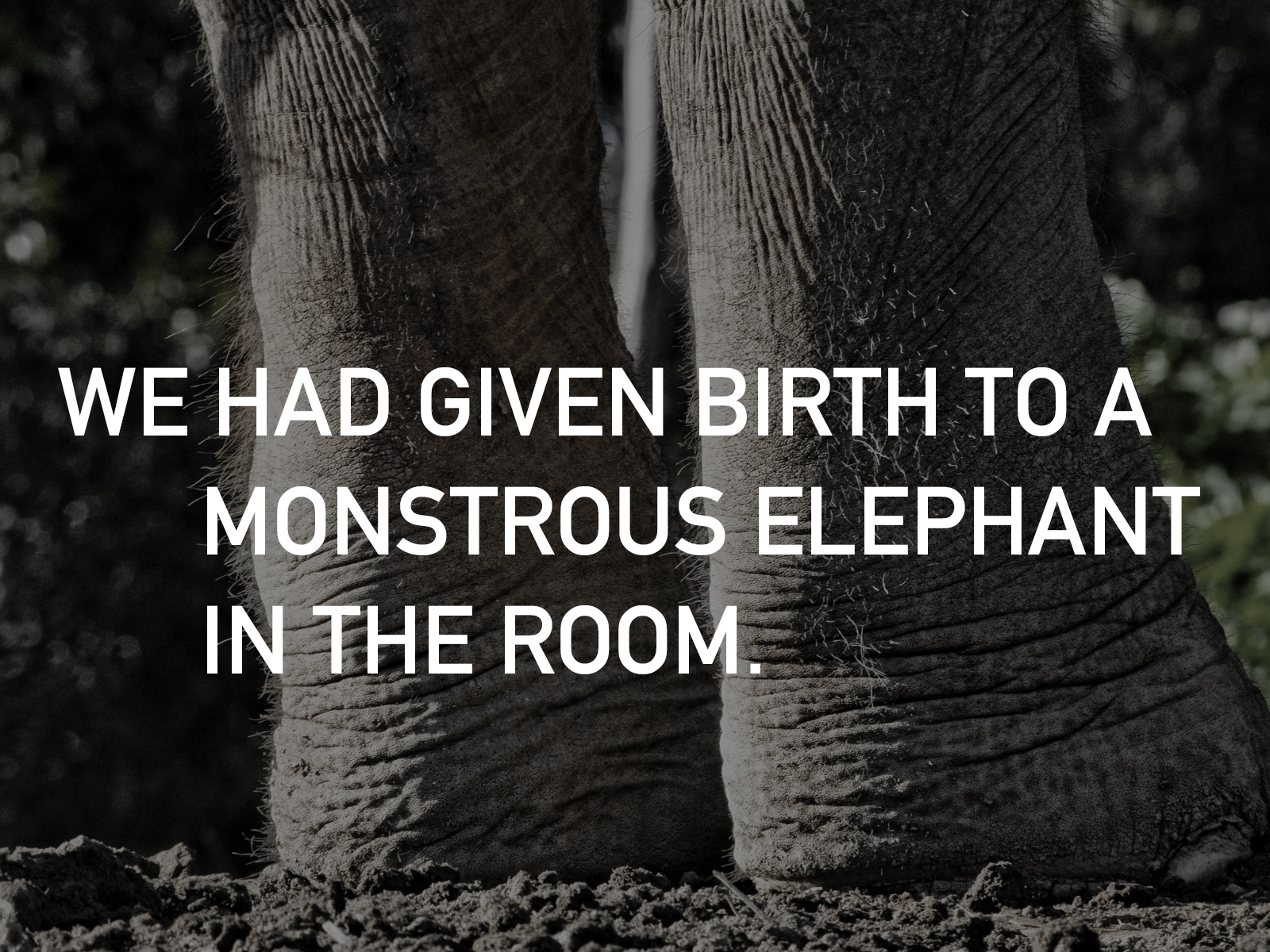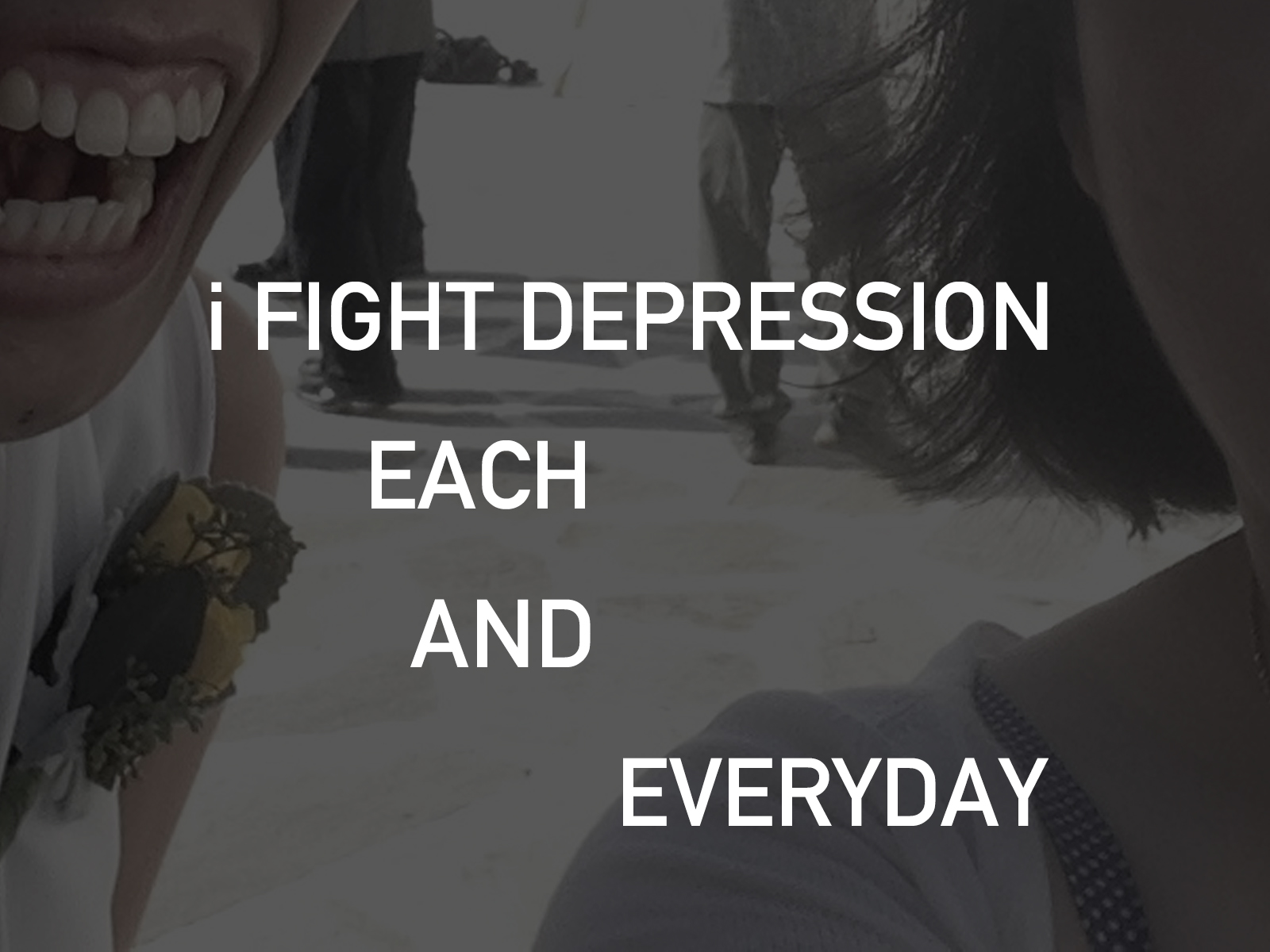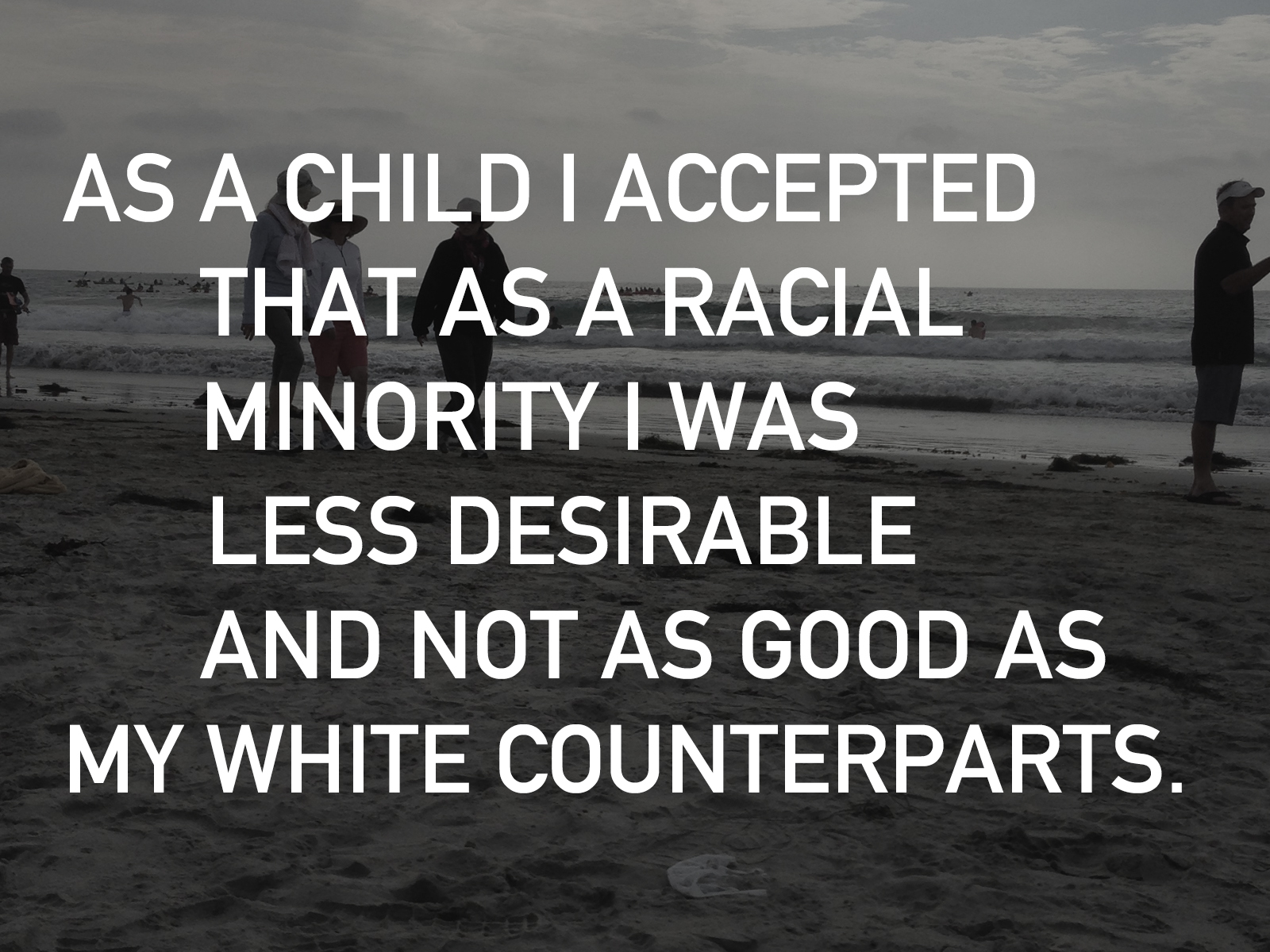In my family, silence has been used as a block to the world of emotion. Feelings are unnecessary, even bothersome and messy. So when I had decided a future for myself that went against the wishes of my parents, silence fell heavy on the situation because it fueled a range of emotions. And starting with my older sister, we had given birth to a monstrous elephant in the room. My sister was a troubled kid, rebelling in many ways and lacked the ability to focus on school. And for myself, I have seen little to no support from Mom and Dad when it comes to my lifestyle choices. Becoming Christian instead of Buddhist, pursuing mass communications instead of a typical Asian-defined successful field of study, staying overweight instead of thin, not dating men of my own culture, and most of all, deciding on a career of ministry instead of practicality—these were just a few examples of how my choices have caused my own life to be a taboo subject at the dinner table. I had helped raise an elephant that took up too much space.
That annoying elephant had become a part of our family because we gave it too many peanuts. My parents raised us to be silent about things that caused heartache, anger, shame, etc.—basically anything that rocked the boat. And every time I came to them with some news that I knew would certainly cause my parents grief, we pumped our pet pachyderm with more sustenance and rarely addressed its presence after that. And so it grew.
Even more off-limits than discussing these difficult topics of conversation with each other was bringing it up with friends and relatives:
“How is Amy?”
“Oh she’s working in L.A., thank you for asking. How is Raymond? Didn’t he recently get a promotion?”
My mom was a master of ambiguous information about my sisters and I. It was always was enough to satisfy the other person, and yet move topics quickly.
Keeping quiet about my religion, passions, dreams, future, and friends involved in all those things drove me crazy. I wanted my parents to be supportive in what I did. I wanted them to at least acknowledge their feelings of disappointment and help me understand them more. I wanted them to listen to how excited I was for my new job and what an impact on the world and people it was going to make. I wanted them to stop thinking so practically, and making me feel guilty every time I came home. I wanted to sit them down and unload all the challenges and difficulties that had gone on these past few years as a young adult trying to make it in this world.
But I couldn’t. I couldn’t because I had lost my right to complain, to talk about suffering, to tell them about my experience in hardship, and to affirm their warnings that it truly is a dog eat dog world out there. This right was stripped of me the moment I went against their wishes because I chose this path. The “I told you so” attitude kept their role as nurturing parents far from me. So I was forced to swallow those feelings around them, and in turn, they kept silent and let passive aggressiveness, assumptions, and unfair expectations of me dictate how to go about the topic of my life.
Another problem arises in this culture of silence: the elephant can only be ignored for so long. It takes after the neighborhood dogs and barks through the day and all of the night. And that’s when Battle Royale in the Hu family takes place.
Throughout my life, I can remember significant arguments that have resulted in high-volume yelling, sobbing, home destruction, and cursing to each of our concepts of heaven. A human being can only keep such things in for so long, and try to ignore the gargantuan hoofed-mammal living in our house. The arguing rarely leads to greater understanding, which is an absolute miracle when it happens. But most of the time, these eruptions just feel more like catharsis than progress.
Cycles of silence, arguing, and pretending to forget are repeated over and over again.
Unfortunately, there is an ongoing list of taboo subjects in our house, and I guess thankfully I am not the only one. From my dad’s great financial loss because of stocks to my mom’s cancer scare (tumor was benign thank God) to my younger sister’s hard-to-love ex-boyfriend to my older sister being abused by an aunt—the subjects range in what I mentioned before—anything that rocked the boat. But the reality was, we were already drowning.
This is my family. Silence is the band-aid to the problems at hand but never the real healing that is so needed. And as my upbringing in America clashes with their traditional Chinese values, it is still hard to reconcile the two to bring understanding. They will be stubborn and choose what they think is easier during difficult situations—keeping their mouth shut. I never thought, as a child, that what made me happy and hopeful would be silenced. But through the Vanessa’s work here, it doesn’t seem to be the case.
HA


